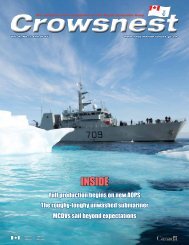Create successful ePaper yourself
Turn your PDF publications into a flip-book with our unique Google optimized e-Paper software.
4.2 US Decline <strong>and</strong> Sino-US Competition 209<br />
Since <strong>the</strong> defeat <strong>of</strong> Japan in 1945, <strong>the</strong> US has been <strong>the</strong> region’s hegemonic actor, able to project<br />
overwhelming power to deter aggression <strong>and</strong> reassure allies. American power—military <strong>and</strong><br />
economic—has upheld <strong>the</strong> regional status quo. In recent years, however, <strong>the</strong> ability to sustain that<br />
role has been called into question both by Washington’s domestic difficulties (indebtedness <strong>and</strong><br />
political polarization) <strong>and</strong> by <strong>the</strong> simultaneous rise <strong>of</strong> China. “What should be evident,” one<br />
Australian academic has written, “is that <strong>the</strong> United States is moving away from its traditional<br />
role <strong>of</strong> global security provider to that <strong>of</strong> security enhancer.” 210 This is interpreted to mean a more<br />
cautious US policy toward international <strong>and</strong> regional security, working with partners (both<br />
traditional <strong>and</strong> o<strong>the</strong>rwise) <strong>and</strong> allies to develop defence capabilities in order to advance common<br />
security objectives. While Washington has declared a continued willingness to maintain <strong>the</strong><br />
post-1945 order, its increased reliance on regional allies <strong>and</strong> partners is unsettling to many<br />
governments. For some regional governments, it calls into question <strong>the</strong> reliability <strong>of</strong><br />
Washington’s extended deterrent <strong>and</strong>, implicitly, it enhances China’s strategic pr<strong>of</strong>ile that China.<br />
Policy-makers in Washington have acknowledged that <strong>the</strong> re-emergence <strong>of</strong> China as a Great<br />
<strong>Power</strong> is <strong>the</strong> most significant long-term strategic challenge that <strong>the</strong> US faces both in Asia <strong>and</strong><br />
globally. 211 <strong>The</strong> roots <strong>of</strong> Sino-US competition lie in what appears to be a fundamental<br />
incompatibility <strong>of</strong> many <strong>of</strong> <strong>the</strong> two countries’ strategic interests. 212 From Washington’s<br />
perspective, Beijing is attempting to advance an agenda that threatens <strong>the</strong> regional status quo that<br />
Washington has long upheld. “<strong>The</strong> underlying geo-strategic objective for <strong>the</strong> United States in<br />
Asia <strong>and</strong> <strong>the</strong> Pacific,” a report prepared by a US think-tank observed, “has been to maintain a<br />
balance <strong>of</strong> power that prevents <strong>the</strong> rise <strong>of</strong> any hegemonic state from within <strong>the</strong> region that would<br />
threaten US interests by seeking to obstruct American access or dominate <strong>the</strong> maritime<br />
domain.” 213 China, on <strong>the</strong> o<strong>the</strong>r h<strong>and</strong>, has been described as “an increasingly assertive, distinctly<br />
non-status-quo power, attempting to rearrange <strong>the</strong> regional geopolitical order in its favour.” 214<br />
<strong>The</strong> constraint imposed by its geography—a l<strong>and</strong> <strong>Power</strong> with very long borders—has declined as<br />
continental threats have lessened <strong>and</strong> maritime interests have grown. 215 This was most recently<br />
underscored by Beijing’s most recent defence policy statement, entitled China’s Military Strategy<br />
209 This section draws upon <strong>the</strong> author’s earlier publication, Determinants <strong>of</strong> US Strategic Policy in <strong>the</strong><br />
Asia-Pacific, DRDC-RDDC-2015-L034 (January 2015).<br />
210 Alan Dupont, Full spectrum defence: Rethinking <strong>the</strong> fundamentals <strong>of</strong> Australian defence strategy<br />
(Lowry Institute: Sydney, March 2015), p. 8.<br />
211 <strong>The</strong> US <strong>and</strong> China look at <strong>the</strong> latter’s rise ra<strong>the</strong>r differently. Washington regards <strong>the</strong> rise <strong>of</strong> China as <strong>the</strong><br />
most significant geopolitical challenge it now faces. However, Beijing makes reference to “reclaiming” its<br />
status as a major power through a policy <strong>of</strong> national rejuvenation. While many Western <strong>Power</strong>s might<br />
interpret that as nationalist rhetoric, China’s outlook is far from ahistorical when one considers that it was<br />
only after 1800 that Europe could be considered more industrialised. Before that time, China had accounted<br />
for a greater share <strong>of</strong> world manufacturing output than Europe. See Paul Kennedy, <strong>The</strong> Rise <strong>and</strong> Fall <strong>of</strong> <strong>the</strong><br />
Great <strong>Power</strong>s (Unwin-Hyman: London, 1988), p. 149.<br />
212 Guy Roberts, “Acknowledge <strong>and</strong> Commit, Disagree <strong>and</strong> Continue: US China Policy for <strong>the</strong> 21 st<br />
Century”, Security Challenges, Vol. 10, No. 1, 2014, pp. 88–89.<br />
213 Berteau <strong>and</strong> Green, U.S. Force Posture Strategy in <strong>the</strong> Asia Pacific Region, p. 13.<br />
214 Chris Rahman, “<strong>The</strong> Inescapable Ocean: On Underst<strong>and</strong>ing Australia’s Strategic Geography” in Jones<br />
(ed.), A <strong>Maritime</strong> School <strong>of</strong> Strategic Thought for Australia, p. 70.<br />
215 This argument is made in Michael A. Glosny <strong>and</strong> Phillip C. Saunders, “Correspondence: Debating<br />
China’s <strong>Naval</strong> Nationalism”, International Security, Vol. 35, No. 2, Fall 2010, p. 168.<br />
DRDC-RDDC-2016-R085 45




